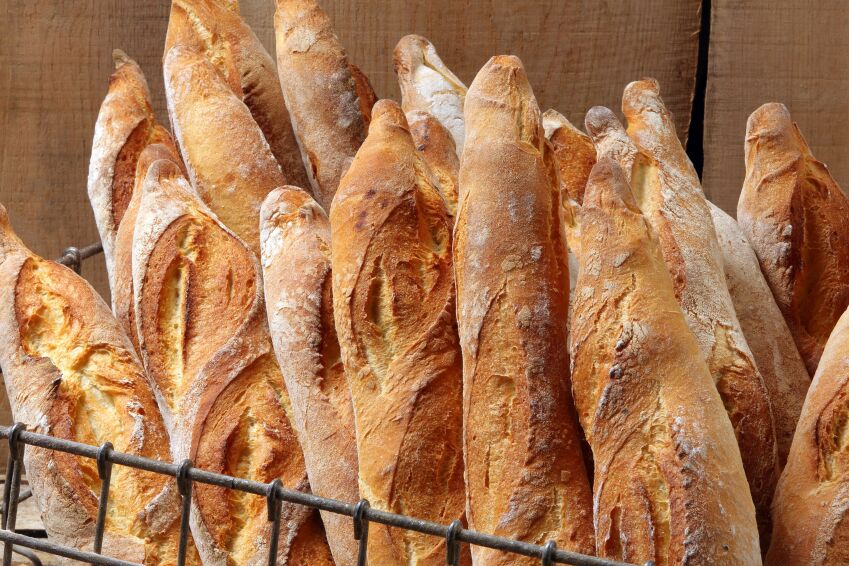 News
News 
France breaks bread with the UNESCO to include the baguette to the intangible heritage
The French Ministry of Culture chose to present the French baguette, its know-how and its culture, as a candidate for inclusion in the UNESCO list of intangible heritage. Nobody can deny that the baguette is iconic to the French heritage! Anyone who has tasted its golden, crispy crust and white crumb would say that this ministerial decision is good.
The French Ministry of Culture chose to present the French baguette, its know-how and its culture, as a candidate for inclusion in the UNESCO list of intangible heritage. Nobody can deny that the baguette is iconic to the French heritage! Anyone who has tasted its golden, crispy crust and white crumb would say that this ministerial decision is good.
The intangible cultural heritage is what is called “a category of heritage” resulting from the Convention for the Safeguarding of the Intangible Cultural Heritage adopted by the UNESCO in 2003. Each year, an Intergovernmental Committee set up for this purpose meets to evaluate nominations and decide whether to include (or not) the cultural practices and expressions of national intangible heritage proposed by the States members of this Convention.
Between bread and wine, a difficult choice for France
Before expressing its choice, the Ministry hesitated over three proposals. In addition to the baguette, there was the Biou d’Arbois, a traditional wine festival to celebrate the wine of Arbois, but also a very French and Parisian specificity, the zinc-covered roofs so characteristic of the capital to crown the “know-how of Parisian roofers and ornamentalists”.
According to the Ministry of Culture, “all three applications were perfectly in line with the spirit and criteria” defined by the Convention to safeguard intangible cultural heritage. But in the end it was the know-how and culture of the baguette that won the day.
As many baguettes as there are bakers
Supported by the “Confédération nationale de la boulangerie-pâtisserie française” (National Confederation of French Bakery and Pastry), with its hundred or so departmental federations, the application for the baguette is , as the ministry points out, the defence and promotion of an “emblem of French cultural heritage”. The baguette is in fact “the most popular type of bread throughout the country”, thanks to its “extremely simple composition, comprising only four elements (water, flour, salt, leaven)”.
According to specialists, the origin of the baguette dates back to the long loaves of the 17th century, but its consumption only became widespread in France during the 20th century, a widespread and uniform use that is no doubt due to the proliferation of bakeries throughout the country. However, as the Ministry of Culture points out, there are as many different baguettes as there are bakers!
Artisanal bakeries versus industrial baguettes
In France, the bakery is indeed “a favoured local business", in towns and in the countryside. However, according to statistics, the number of bakeries is “steadily decreasing, particularly in rural areas”. In 1970, there were 55,000 small-scale bakeries compared with 35,000 today, and this decline is often due to the sale of industrially produced baguettes. The Ministry of Culture has therefore joined forces with the Ministry of Agriculture and Food to “halt this decline by increasing the value of the craft sector”.
A heritage in its own right
France’s application was submitted at the end of March to the Secretariat of the UNESCO Living Heritage Entity to be studied by the evaluation body, which is expected to make its decision in autumn 2022. Roselyne Bachelot, the French Minister of Culture, believes that if this national application is successful before UNESCO, the registration of the baguette would “raise awareness of the fact that a food practice that is part of everyday life, shared by the majority and taken for granted, constitutes a heritage in its own right”.
To know more:
- Intangible heritage of UNESCO
Photo credit: ©wideonet - stock.adobe.com




Comments
You must be logged in to leave a comment. Log in